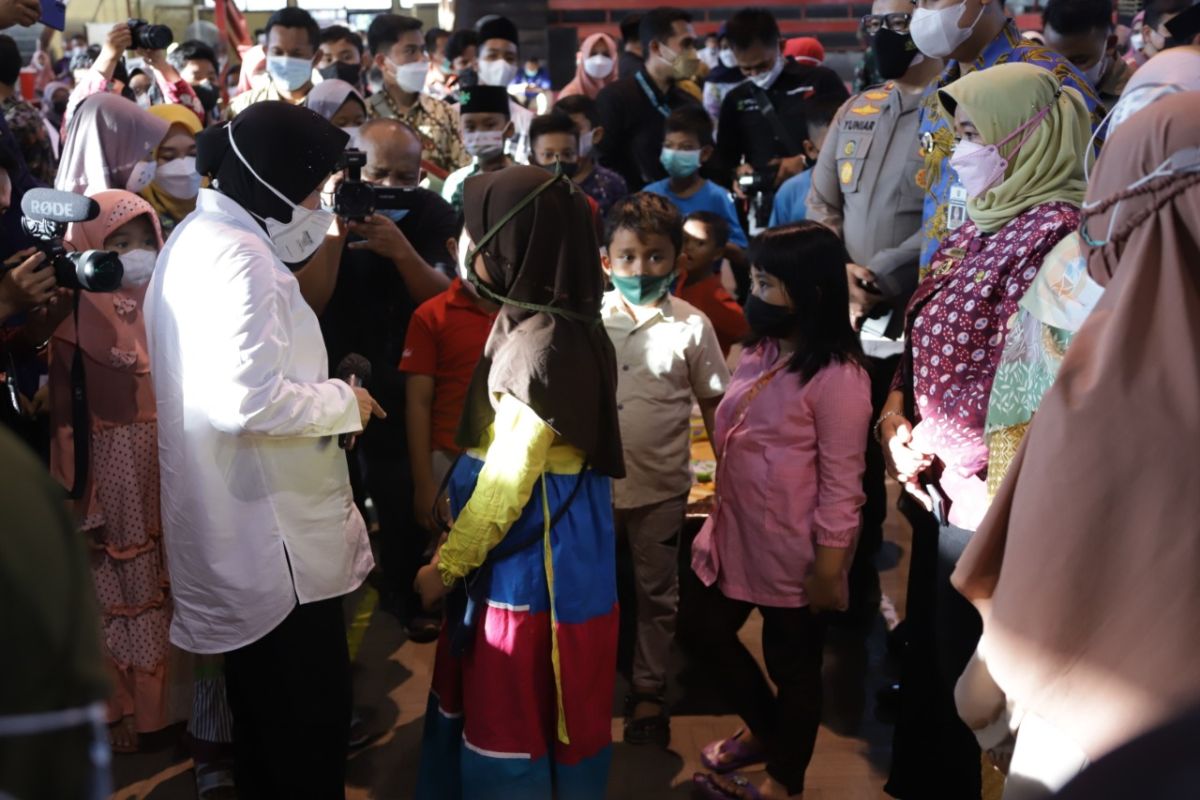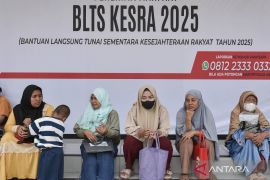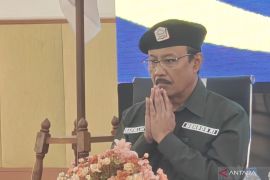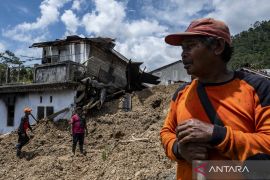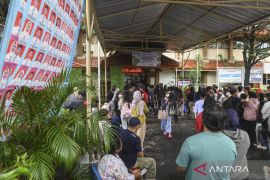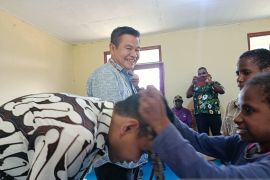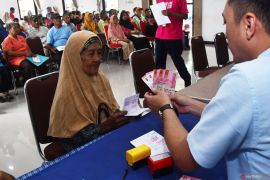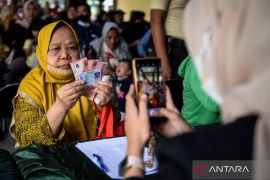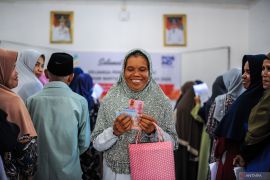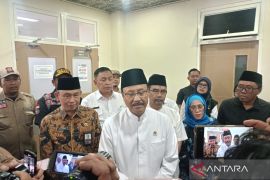Once data from a local government has been obtained, it will be re-verified so the assistance provided can be appropriate, she added.
"This assistance will in the form of cash amounting from Rp200,000 to Rp300,000 per child per month, depending on whether he or she attends school or not. We will do this next year, so this day it is only for those whose parents died from COVID-19," she further said.
Next year, assistance for orphans whose parents died due to COVID-19 will be the same as for those whose parents died from other causes, she added.
Rismaharini on Thursday provided cash assistance to 27 orphans totaling Rp6.1 million. Every child going to school will receive Rp200,000, while those not attending school will get Rp300,000 each month.
She also affirmed the government will not stop providing social assistance (bansos) to the poor affected by the COVID-19 pandemic in 2022.
"The Ministry of Social Affairs has budgeted Rp74.08 trillion for social assistance in 2022. The assistance programs from the Ministry of Social Affairs that will continue are regular social assistance and special social assistance," she added.
Related news: Social Affairs Ministry proposes Rp3.2 trillion of aid for orphans
However, Coordinating Minister for Human Development and Culture Muhadjir Effendy said extreme poverty cannot be resolved through just social assistance programs.
"President Joko Widodo has targeted an extreme poverty rate of zero per cent by 2024. Therefore, currently, the government aims to overcome extreme poverty through various methods," he said in a written statement on Friday.
Extreme poverty is still a serious challenge facing social development in Indonesia, he added.
According to the Central Bureau of Statistics, Indonesia’s extreme poverty rate reached 4 per cent of its total population, or some 10.86 million people.
However, social assistance schemes were not enough to handle the problem, as it also had to use an environmental approach, the bureau added.
According to Effendy, it is necessary to carry out regional development by creating a livable environment, as extremely underprivileged people tend to form groups and settle in slums.
"Hence, areas with extreme poverty will be managed in an integrated way, through using environmental approaches, establishing decent houses, and providing adequate sanitation and clean water," he explained.
Related news: Confident Indonesia will eliminate extreme poverty by 2024: minister
Related news: Govt to rechannel social assistance budget to combat extreme poverty
Translator: Rendra O, Azis Kurmala
Editor: Suharto
Copyright © ANTARA 2021
